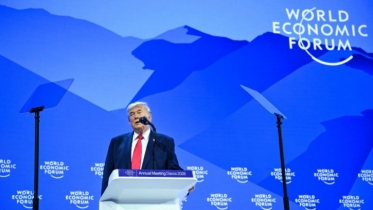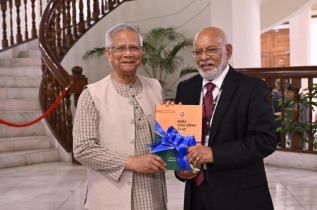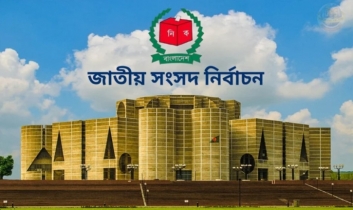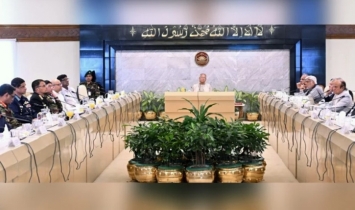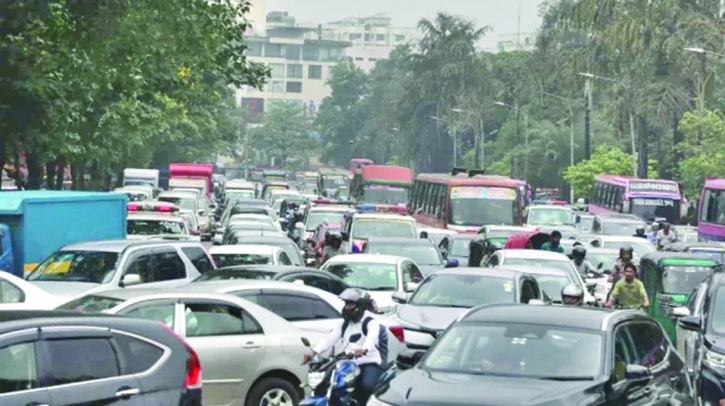
There are multiple reasons that has made Dhaka unlivable, and one of those that keeps its residents in constant and invisible agony is sound pollution. Loudspeakers, hydraulic horns, or the sound of construction works, factory work, and generators continue from morning to night amid people’s ignorance about their health hazards. Lack of public awareness and official apathy has turned sound pollution into a largely overlooked offense in Bangladesh despite its serious health impacts. Although the government has introduced some measures, the results on the ground remain disappointing. Despite the declaration of the area surrounding Hazrat Shahjalal International Airport in Dhaka as a “Silent Zone,” nothing has changed.
Previously, the Department of Environment announced 12 silent zones across Bangladesh, with five located in Dhaka, including the Secretariat, Agargaon, and the Parliament area, but vehicles kept honking horns, ignoring the restriction.
A recent study by the Center for Atmospheric Pollution Studies (CAPS) revealed that no silent zones in the country were effectively enforced.
The Center for Atmospheric Pollution Studies (CAPS) at Stamford University carried out a year-long study from April 2021 to March 2022, measuring noise levels across ten locations in Dhaka.
The study found that noise pollution exceeded acceptable limits in every area surveyed. Specifically, excessive noise was recorded 96.7% of the time in designated quiet zones, 91.2% in residential zones, 83.2% in mixed-use areas, 61% in commercial zones, and 18.2% in industrial zones. These results highlight the widespread nature of noise pollution in Dhaka, with 82% of monitored sites consistently registering noise levels above 60 decibels.
This occurs despite the Noise Pollution Control Rules of 2006, which cap permissible noise levels at 45 decibels at night and 55 during the day in residential areas, and 60 at night and 70 during the day in commercial zones.
However, enforcement of these regulations remains a major issue.
Aiming to fight the silent killer, the Ministry of Environment, Forest, and Climate Change has planned to amend the Sound Pollution Control Rules, 2006, with provisions of harsher punishment and some restrictions to combat the severe noise pollution.
A draft of the new Noise Pollution (Control) Rules, 202,5 has been prepared with a proposal to increase the penalty for violation of rules.
Under the old rules, the maximum penalty for causing noise pollution was one month imprisonment or a fine of Tk10,000 or both.
Violations related to noise limits, unauthorised use of loudspeakers, firecrackers, or failure to follow noise regulations at construction sites and factories can lead to up to one month imprisonment, fines up to Tk50,000, or both per offense.
Specific violations related to vehicle horns may attract up to one month imprisonment, a fine of up to Tk20,000, or both per incident.
Manufacturing, importing, or marketing horns beyond prescribed limits may result in up to two years imprisonment or a Tk200,000 fine, or both.
Unauthorized selling or distribution of excessive noise horns may lead to one month imprisonment or a Tk50,000 fine.
The draft rules also include a prohibition on the import, marketing, and use of vehicle horns that produce noise beyond accepted limits.
Besides, specific permissible decibel levels for different types of vehicle horns have been set in the proposed law.
Besides, the use of noise-producing firecrackers and crackers will be banned unless special permission is obtained.
Restrictions on the use of microphones, loudspeakers, and music systems will also be introduced, prohibiting loud music or cultural programs after 9pm.
Dr Farhina Ahmed, Secretary of the Ministry, said the 2006 rules lacked clarity on several points.
The new draft clearly addresses issues related to horns, firecrackers, and other noise sources, alongside increasing penalties, she said
She added that the draft law is expected to be finalised soon.
“We have already held inter-ministerial meetings and received feedback from 21 ministries. The draft was published on our website for public comments. After collecting opinions, another meeting will be held,” she said. The draft law is slated to be finalised by the end of August before being sent to the Ministry of Law for vetting and then published in the official gazette.
The draft exempts noise rules for religious places such as mosques, temples, churches, pagodas, and other worship sites; religious events including Eid prayers, sermons, funerals, and processions; ambulance and fire services; government broadcasts during Iftar and Sehri; and certain official government activities.
According to the draft law, the Ministry of Commerce and relevant authorities will not grant permission for importing or marketing horns exceeding the acceptable noise limits.
Use of such horns on motor vehicles, boats, or other transport means will be strictly prohibited.
Vehicles that will not be allowed to honk horns in designated quiet zones. Drivers, owners, and operators won’t be allowed to install or use any devices or parts that produce excessive noise, nor authorise others to do so.
The proposed law sets noise limits based on area type:
- Silent zones: 50 dB (day), 40 dB (night)
- Residential: 55 dB (day), 45 dB (night)
- Mixed-use: 60 dB (day), 50 dB (night)
- Commercial: 70 dB (day), 60 dB (night)
- Industrial: 75 dB (day), 70 dB (night)
- Daytime is defined as 6am to 9pm, and nighttime from 9pm to 6am.
- For vehicle horns, permissible noise levels are:
- Light vehicles (two/three-wheelers, cars, microbuses, pickups): 85 dB
- Medium vehicles (minibuses, medium trucks, vans): 90 dB
- Heavy vehicles (buses, trucks, lorries): 100 dB
- Mechanical boats: 100 dB
Authorities must install noise barriers near overpasses, flyovers, elevated expressways, or railway lines to reduce noise pollution, according to the draft.
Noise pollution awareness training and testing will be mandatory for obtaining or renewing professional or non-professional driving licenses. The Bangladesh Road Transport Authority, in consultation with the Department of Environment, will design the training curriculum.
Use of noise-producing firecrackers is prohibited unless special permission is granted for festivals or events, with strict limits on timing and noise levels.
Local bodies such as Union Parishads, municipalities, city corporations, and urban development authorities will identify noise zones and install standard signage.

